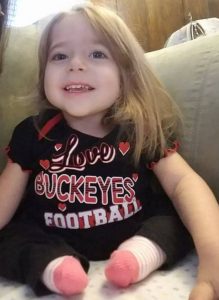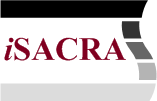
Have you ever considered how much the words we use reveal our attitudes and also influence the attitudes of others? If you describe a woman as “wheelchair bound”, does that convey an image of a healthy, socially active, independent professional? If not, what did you think of when you heard that description? The word “bound” conveys images of limitations and restrictions.
Those of us who use wheelchairs are certainly not “bound” to our chairs. If we do use wheelchairs, we get in and out of them in the blink of an eye. How we describe ourselves, if we have SA/CRS, and how parents describe their children who have SA/CRS becomes important in our own development of self-image and confidence and also influences the attitudes of others in society. Take a look at these words and their alternatives: (users of language other than English see this
Spanish language articles here
NO LONGER USED RECOMMENDED
| Handicapped, crippled, abnormal, deformed | A person with or having a physical disability or condition |
| Confined to, bound to, limited by, dependent on | “uses” , as in “uses a wheelchair or crutches” |
| suffers from, victim of, afflicted by, | “has the condition of SA/CRS” |
| Normal, healthy (to describe those who do not have a physical disability) | The general public, those not having a disability, other people, able-bodied individuals |
| Special, brave, inspiring, superhuman, courageous, heroic | These words may be okay if the individual has actually performed a task that would be considered brave, inspiring if a person without the physical disability would also be called brave or inspiring for the same reason. When used to describe routine tasks of everyday life, these words are insulting because they indicate that nothing more is expected of the individual with a physical disability. |
| Something “wrong”, “what’s wrong” | Has a physical disability or condition |
| Stricken, poor, unfortunate | A person with a physical disability or condition |
| Handicapped (parking, bathroom, entrance) | Accessible parking, accessible bathroom, accessible entrance |
Here are some more links to explore about use of language and etiquette preferred by those with disabilities
Disability language articles
https://www.disabilityisnatural.com/people-first-language.html
http://sudcc.syr.edu/LanguageGuide/#faq-2
http://www.aucd.org/docs/add/sa_summits/Language%20Doc.pdf
http://rds.colostate.edu/languagehttps://hrecutah.org/resources/disability-language/
http://ncdj.org/style-guide/#defectbirthdefect
Disability etiquette articles
http://www.miusa.org/sites/default/files/documents/resource/DisabilityEtiquette.pdf
Talking to kids about disability article
http://www.pbs.org/parents/experts/archive/2013/06/how-to-talk-to-kids-and-parent.html
